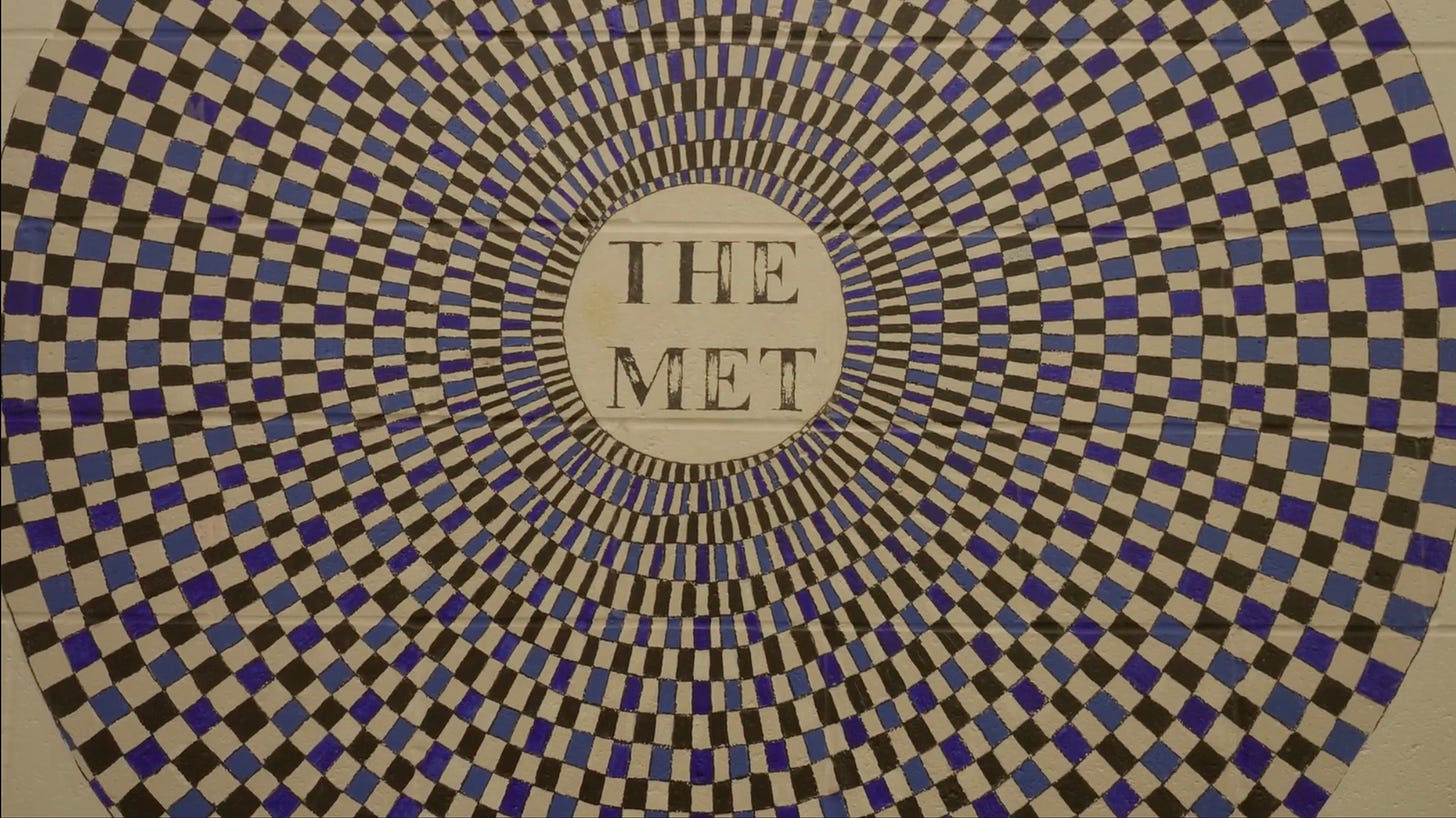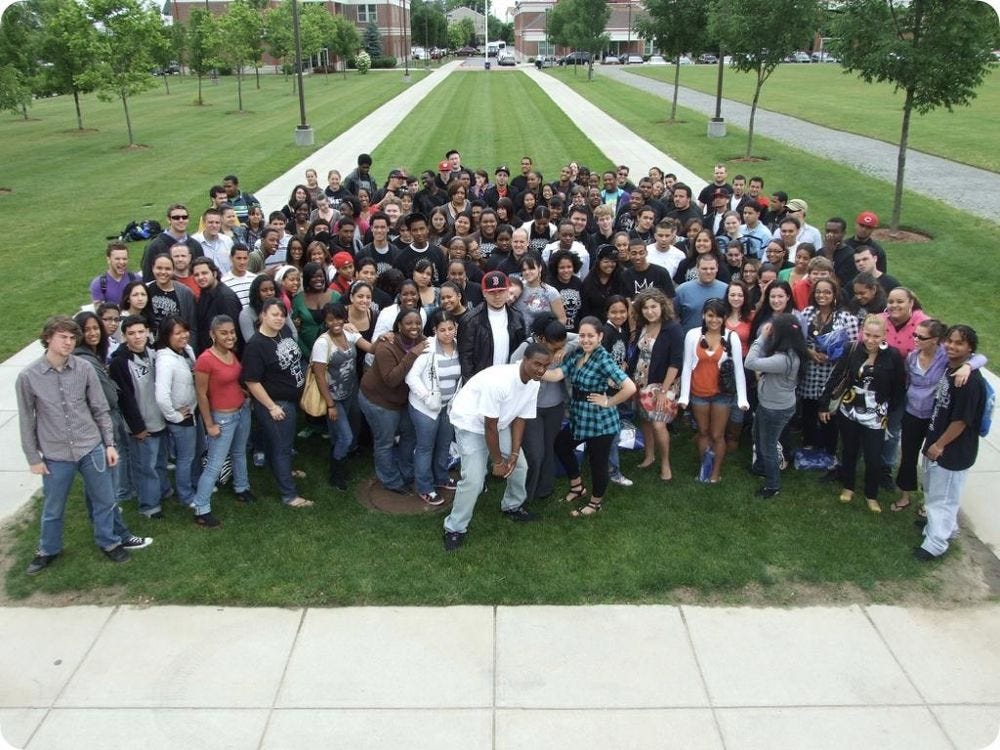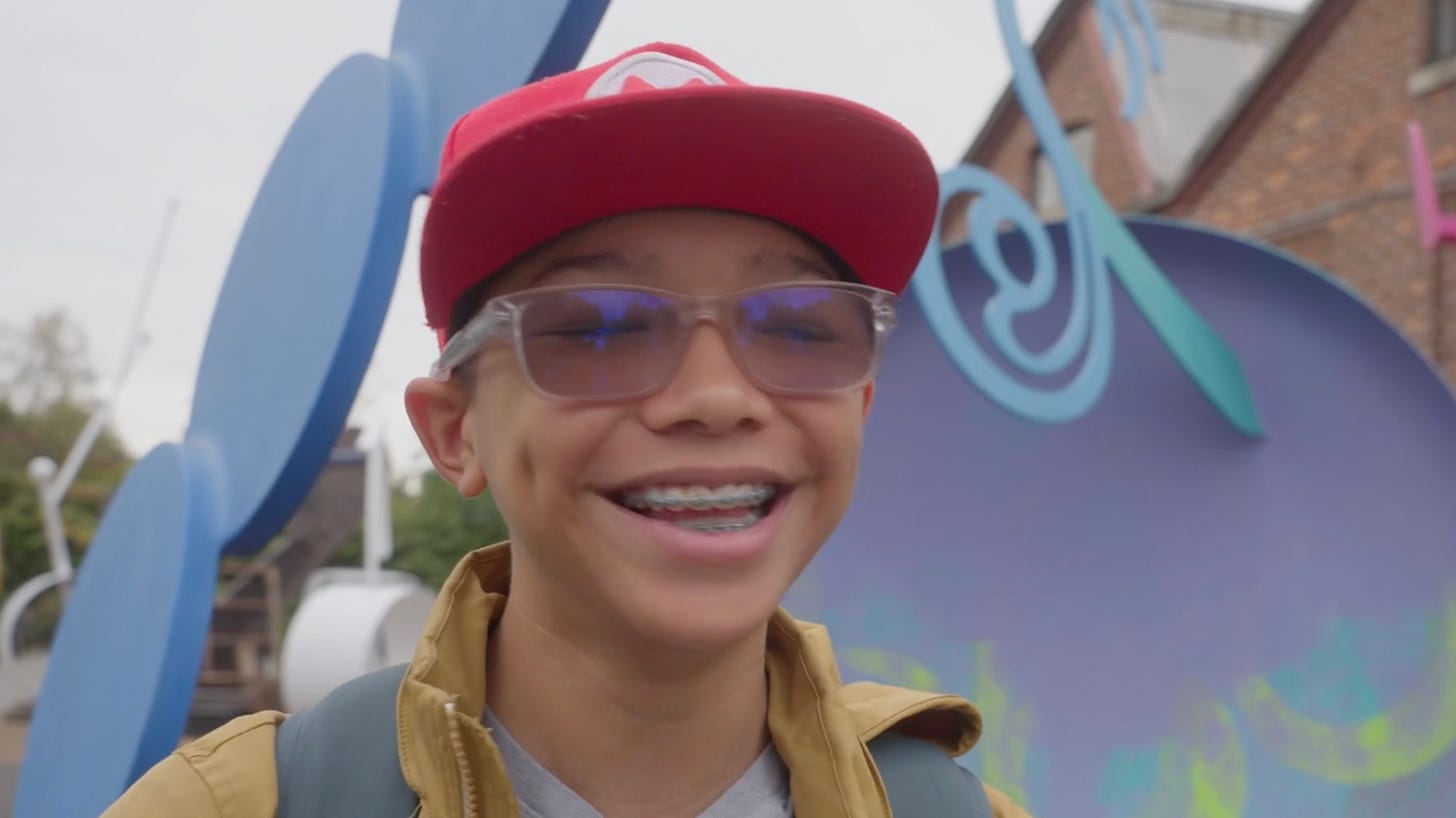Letters from the Future (of Learning): At This School in Providence, the Community Is the Campus
Like a lot of first-generation kids, Zainabou Thiam (“Nabou” for short) grew up knowing exactly what her parents envisioned for her.
“We came to this country from Senegal so our daughter could be a lawyer,” Nabou’s mom explained from the living room of their home in Providence, Rhode Island. “Sometimes, when you have kids, you want to project what they will be.”
For the bulk of her formal schooling, Nabou -- seventeen, buoyant, and self-assured -- felt the same sort of constriction. “For so much of my life, people have always told me what they wanted for me. First it was my parents, and then at school I was being fit into a mold that just didn't feel right. I feel like as students we’re always asked, ‘What do you want to be when you grow up? What do you want to do in the next 10 years?
“But it's never like, ‘What do you want to do now?”
For Nabou, the answer was launching her own business. So, all on her own, she applied after her sophomore year to transfer to an unconventional public high school in Providence that doesn’t even describe itself as a school: the Metropolitan Regional Career and Technical Center.
Located on a five-acre campus that was once an abandoned city lot, The Met is made up of six small public high schools. Every student has an individual learning plan, a sixteen-student advisory, and a single advisor -- who is their only teacher -- for all four years. Learning is done through public internships, which take the students out and into the community, apprenticeship-style, two days a week. And relationships of all kinds, and in all directions, provide the mycelial threads that weave everything together.
The Met’s model has, by any measure, been a massive success. It was the first school launched by Big Picture Learning, an organization that now boasts a network of more than one hundred schools across the USA and around the world. It’s filled with former alums on campus who have returned to forge their adult lives as mentors, administrators, and secretaries. And it’s overflowing with stirring testimonies of young people like Nabou, who credit The Met for changing their lives.
“I believe I was put into The Met at the right moment at the right time,” she told me. “Normal school shelters you from being able to find out who you are. There's so much anxiety in schools with kids learning useless information, and pumping out people who don't know who they are.”
At The Met, however, student interest drives everything, as I witnessed the day I visited.
Nabou’s advisory, which is led by a long, loving man named Vency Beato, were working on community projects. “How many of you have identified the issue that you’re trying to help with?” he asked.
Not surprisingly, Nabou and most of her advisory mates had identified their issue, which meant spending the next thirty minutes identifying statistics to affirm their issue’s social urgency.
But one young man was clearly floundering -- eager to have the decision taken off his plate (as it would be at almost any other school). “You can’t wait until someone tells you what to do,” Vency gently admonished. “It needs to be you making the choice.”
For Beato, these struggles feel familiar. “I come from where they come from,” he explained. “So I can definitely say hey, I know what you're going through. Let's work on how to navigate it, whether it's the academic portion or the real world portion. You guys are at internships. You're young. You're working with adults. Sometimes they're from where you're from. Sometimes they're not. Let's navigate that and learn how to do it in a way where you come out being your best self.
“That's what the Met is all about. You leave here furthering what you'd like to pursue - and crossing things off along the way.”
For Nancy Diaz, a lifelong Providentian and The Met’s Director of Schools, that level of exposure is what makes the model so transformative. “Growing up poor,” she began, “there were really only two career options: you can be a teacher or you can be a police officer. I had no idea there were even other paths to pursue. But here, kids get to be treated fairly, they get to be nurtured, and they get to find out their passions and be exposed to so many different things.
“That’s why everybody has an individualized learning plan -- because everybody is a different person.”
Indeed, whereas most high school teachers are content specialists, The Met’s adults are generalists by design. “To be a teacher at the Met is to constantly be learning with our students,” Beato explained. “I can't teach astronomy. I can't teach physics. Yet I have a student right now who’s studying to be an astrophysicist. So while I may not know anything about that, I'm learning alongside him, and helping him find the connections he needs to make in this city that will deepen his understanding.”
The mile-wide approach extends beyond academic knowledge. “We’re primarily educators,” Beato continued, “but we also work as guidance counselors. We work as social workers. We do it all. My students can call me whenever they're in trouble. I want them to call me whenever they're in trouble. If you're sick, I want you to reach out to me. I want you to know that I'll go get you whenever you need. I don't know if I would get that somewhere else.”
Nabou knows for a fact he wouldn’t. “My relationship with Vency has changed my life,” she said as her eyes welled with tears. “He's always making sure that I'm grounded and doing what I need to do. And he’s always pushing me to be me and to reach my true potential, which I really appreciate.
“When you're a teen, trying to figure out who you want to be and how you're going to do it, it can feel overwhelming. “But now I know I will never not be authentic to myself. The Met has given me the opportunity to discover what’s important to me. And it has really taken away the anxiety that I felt before. I feel like my mental health and my well-being are at an all time high, where it's like I just get so excited to go to school. Like I say it all the time, there is nothing wrong with Mondays. And I know I am going to succeed.”
This is the magic of The Met — that every student feels this way: all 800 of them.
“Our model works because the internships our kids experience help them explore what they think they’re interested in before they’re making $40,000 or $50,000 decisions to go to college,” explained mentor Jodie Woodruff while dropping off one of her students, Jayden Ferreras, for his internship with a local baker.
“To be honest,” Jayden explained while wearing his signature Mario Brothers baseball hat (he has a matching chef’s hat to boot), “I didn’t really like baking at first. I was just in it to help my mom financially. But as time passed on and I got accustomed to baking, I liked how creative you could get with it.
“And now I can’t help but look back and say’ ‘Damn, that was me? Look me at me now — I’m running a business for almost a year? I’m helping my mom financially?’
“I’m so happy that I don’t have the words to say anything about it. This experience has taught me so much — inside and out.”
To learn more about The MET, and schools like it, visit education-reimagined.org
This is how we #changethestory . . .
This blog post has been shared by permission from the author.
Readers wishing to comment on the content are encouraged to do so via the link to the original post.
Find the original post here:
The views expressed by the blogger are not necessarily those of NEPC.




